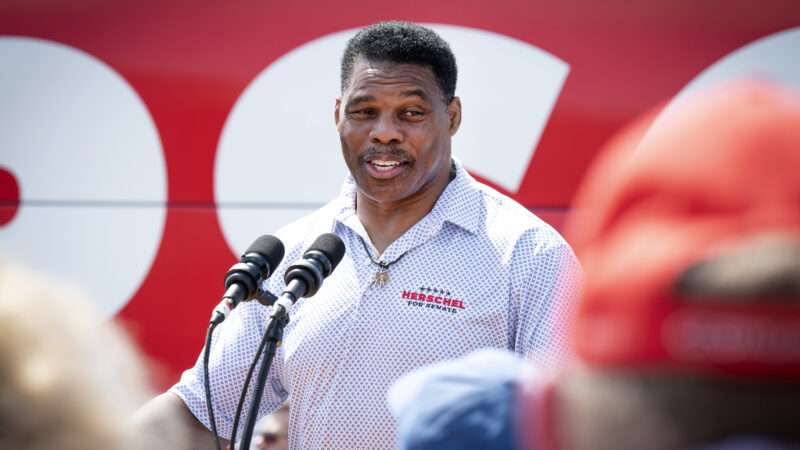
With control of the Senate in November very much up in the air, each contestable race is important to both Republicans and Democrats. The most hotly contested match-up is in Georgia, where Democratic Sen. Raphael Warnock faces Republican football star Herschel Walker.
The fact that the race is even questionable is a bit of an embarrassment for the Republican Party: While the state is turning purple, Democrats still face an uphill battle there. After a star-making run for governor in 2018, Democrat Stacey Abrams will face Gov. Brian Kemp in a rematch in November. But while she only narrowly lost in 2018, polling this time shows Kemp with a comfortable lead.
Meanwhile, Walker's campaign has suffered self-inflicted wounds. In addition to bewildering comments about pollution (China's "bad air" is trading places with America's "good air") and evolution, Walker's personal life has come under scrutiny. Long a critic of absentee fathers in the black community, The Daily Beast reported in June that Walker secretly fathered two sons and a daughter out of wedlock and plays a very minor, if not nonexistent, role in the children's lives.
This week, The Daily Beast further reported that in 2009, the same year he had a child with one woman, Walker paid a different woman to have an abortion. The outlet spoke with the woman in question, who provided a receipt for the procedure and a copy of a reimbursement check and a get-well card from Walker.
While consensual matters in a candidate's private life are of little consequence to their fitness for office, Walker has previously advocated banning abortion with no exceptions for rape, incest, or maternal mortality.
Walker denied the allegations and said he would be suing The Daily Beast for the "defamatory lie." But Christian Walker, the candidate's son with his ex-wife, confirmed the allegations on Twitter.
"It's a very hypocritical position he's taken," Chase Oliver, the Libertarian Party (L.P.) of Georgia's candidate for Senate, tells Reason. "It's a classic political move of, 'Illegal for thee, but not for me,' and I feel like it's yet another piece to this consistent path that Herschel has taken, where he has obfuscated the truth or said something that wasn't entirely true…. I think it leads to a lot of questions about integrity, and honesty."
Oliver thinks there is a possibility that Walker may drop out of the race. "When there's family involved, sometimes family takes precedence over things like politics. I think he should probably take a good long look at whether he wants to stay in this race or whether he wants to just get out of the race and start repairing the damage that's been done by his campaign." According to Georgia law, the deadline for substituting a candidate is 60 days before the general election, which would have been nearly a month ago.
If Walker drops out, voters will still have Warnock and Oliver to choose from. But if Walker had run for a House seat instead, voters would have had no other option than his Democratic opponent. That's because Georgia law stipulates that for House races, third-party candidates must collect signatures from 5 percent of the registered voters in their district to get on the ballot—more than 20,000 in total. In nearly 60 years, no third-party candidate has successfully achieved that goal. Yesterday, the Supreme Court declined to hear a challenge to that law, leaving the restriction in place.
In Georgia, candidates need to surpass 50 percent of the vote to win outright and avoid a runoff. In 2020, Warnock secured his Senate seat by surviving a crowded special election and eking out a two-point victory over incumbent Sen. Kelly Loeffler in a January 2021 runoff. Oliver worries that the new revelations about Walker may "cause more people to not vote at all and maybe push Warnock over 50 percent." Considering that Oliver is polling well enough to cover the difference between the two candidates, he hopes to prevent an outright win from either side and that enough Republican voters will abandon Walker "and maybe put me in the runoff" against Warnock.
"There are positions [where] Republicans might not agree with me 100 percent of the time, but I've never lied about my positions. I've always been very honest and forthright, and, at the same time, there's a lot of things that I think those voters can find comfort in me: I'm a fiscal conservative, I support gun rights, I want to make it easier to start a small business, I'm against taxation, so there are a lot of areas where I feel like Republicans can feel comfortable supporting me and knowing that I'm an honest and principled choice."
The post Herschel Walker's Campaign Shows Why Third-Party Candidates Are Important appeared first on Reason.com.







